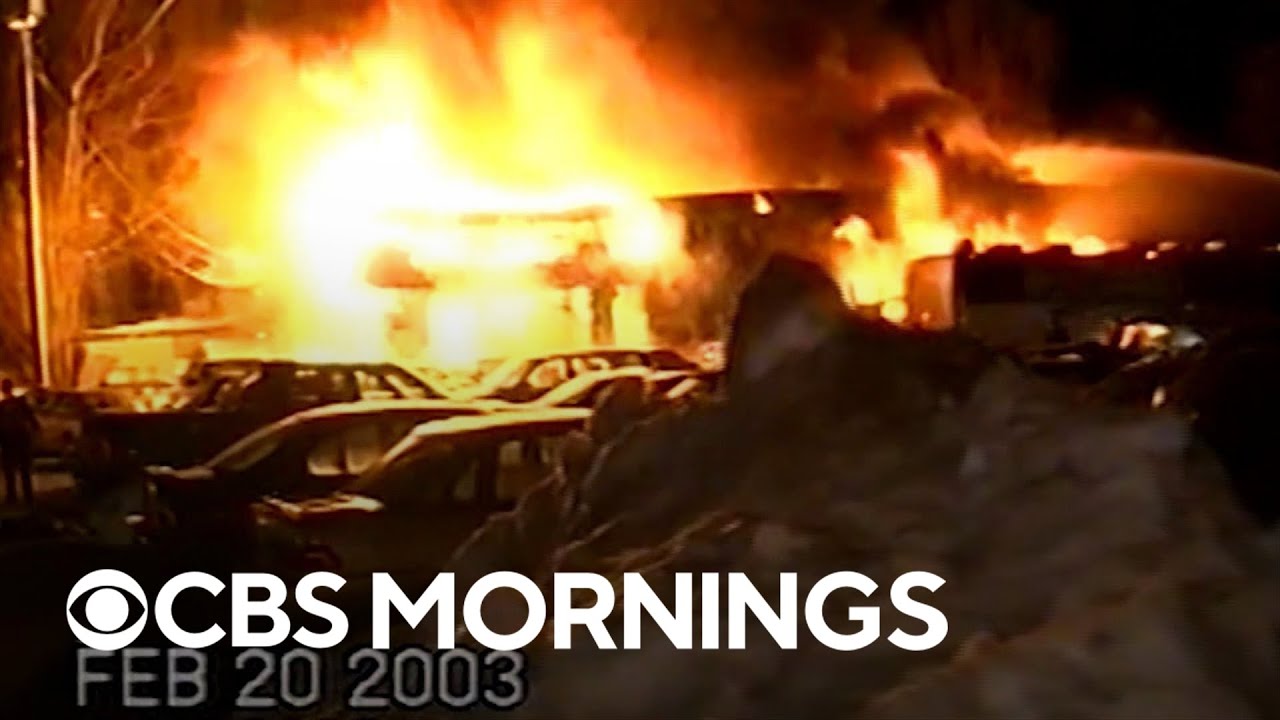Introduction: The Tragic Fire at Station Nightclub in Rhode Island
On the fateful night of February 20, 2003, tragedy struck the Station Nightclub in West Warwick, Rhode Island. What was supposed to be a night of entertainment and enjoyment turned into one of the deadliest nightclub fires in American history. The fire, which claimed the lives of 100 people and injured more than 200 others, shook the local community and the entire nation. As the investigation unfolded, attention turned to the chain of responsibility and the ultimate question of who was the owner of this ill-fated establishment.
The Investigation: Unraveling the Chain of Responsibility
In the aftermath of the fire, investigators diligently pursued leads to understand the events leading up to the tragedy. Their focus was on unravelling the chain of responsibility, seeking answers about who should be held accountable for the inadequate safety measures that contributed to the severity of the incident. The investigation quickly led them to the Station Nightclub’s ownership, shedding light on a web of negligence and non-compliance.
A Look at the Club’s Ownership: Seeking the Mastermind
The ownership of the Station Nightclub was a key aspect of the investigation. Determining who was behind the scenes, making decisions about safety protocols and ensuring compliance with regulations, became crucial in assigning responsibility for the tragedy. It was crucial to identify the mastermind behind the establishment in order to bring justice to the victims and their families.
Kent County District Court: The Legal Battle Begins
The legal battle over ownership and accountability for the Station Nightclub fire started in the Kent County District Court. This court became the arena for legal proceedings, where the owners and other responsible parties faced charges related to the fire. The court became the platform where evidence was presented, witnesses testified, and the truth began to unravel.
The Station Nightclub’s Original Owner: A Troubled Past
Before the tragic fire, the Station Nightclub had changed hands several times. The original owner, Raymond Villanova, had a troubled past that cast a shadow over the nightclub’s history. His involvement with organized crime and previous legal issues raised questions about the club’s operations and safety standards during his ownership.
Michael and Jeffrey Derderian: Ownership Transition
Ownership of the Station Nightclub later transitioned to two brothers, Michael and Jeffrey Derderian. They took over the establishment in 2000, with hopes of revitalizing its reputation and success. However, their tenure would be marred by the devastating fire that unfolded just a few years later.
Michael Derderian: The Co-Owner and Mastermind Revealed
During the investigation, it was revealed that Michael Derderian played a pivotal role in the tragedy. As the co-owner of the Station Nightclub, he had direct involvement in the decisions that ultimately contributed to the inadequate safety measures. He knowingly allowed the use of highly flammable materials, such as foam insulation, which rapidly fueled the fire and contributed to the rapid spread of the flames.
Jeffrey Derderian: The Other Co-Owner’s Role in the Tragedy
While Michael Derderian was identified as the mastermind, his brother Jeffrey Derderian, the other co-owner of the nightclub, also faced scrutiny for his role in the tragedy. Jeffrey was accused of being aware of the hazardous conditions but failing to take appropriate action to rectify them. The investigation revealed that he was present that night and made the ill-fated decision to allow the use of pyrotechnics inside the crowded venue.
Fines and Penalties: Holding the Owners Accountable
In the aftermath of the fire, fines and penalties were imposed on the owners and other responsible parties. The Derderian brothers, along with Raymond Villanova, faced legal consequences for their negligence and non-compliance with safety regulations. These penalties aimed to hold them accountable for their actions and send a strong message about the importance of prioritizing public safety.
Civil Lawsuits: Seeking Justice for Victims and Families
Beyond the fines and penalties imposed by the court, civil lawsuits were filed by victims and their families seeking justice and compensation. These lawsuits targeted not only the Derderian brothers but also other entities deemed responsible, such as the band that ignited the pyrotechnics and the company that supplied the foam insulation. The civil lawsuits aimed to provide closure and support to the victims and their families.
The Criminal Trial: Determining Guilt and Responsibility
The criminal trial following the Station Nightclub fire was a critical process to determine guilt and responsibility. Michael Derderian ultimately pleaded guilty to 100 counts of involuntary manslaughter, while Jeffrey Derderian pleaded no contest to similar charges. The trial provided an opportunity for the victims’ families to confront the owners and hold them accountable for the devastating loss of life.
Aftermath and Consequences: Impact on Nightclub Industry
The tragic fire at the Station Nightclub in Rhode Island had far-reaching consequences, particularly regarding safety regulations in the nightclub industry. The incident prompted authorities across the country to reassess and strengthen fire safety codes, enforcement measures, and emergency egress protocols. The devastating loss of life served as a stark reminder of the importance of ensuring the safety of patrons, leading to significant changes within the industry to prevent similar tragedies from occurring in the future.





